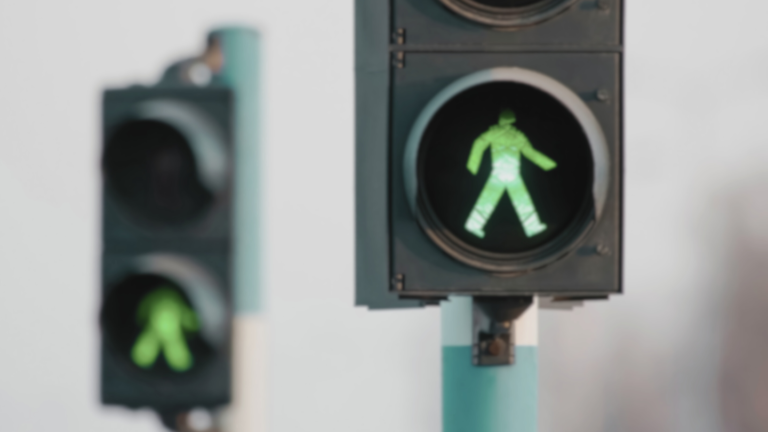08 Mar 2023, 11:11
Victorian Legislative Council, Melbourne
Rachel PAYNE (South-Eastern Metropolitan):
I am pleased to rise to speak to this, the very first bill introduced into this Parliament by Legalise Cannabis Victoria, the Road Safety Amendment (Medicinal Cannabis) Bill 2023.
As brand new MPs in only the third sitting week of a new Parliament term, to have this private members bill introduced, second-read and now in debate speaks to our passion on this issue. I hope it is a signal of the work ethic we present as MPs and as a political party and of the work we intend to bring to this chamber.
Medicinal cannabis is a lawful pharmaceutical medicine, and this bill seeks to achieve one simple action: to treat this medicine in the same way as every other prescription medication under the Road Safety Act 1986. If you are prescribed a medicine by your doctor, you should be allowed to drive a car provided you can drive safely. But under our current law, a minute trace of medicinal cannabis can trigger a positive roadside test and lead to prosecution, conviction and the loss of a drivers licence, even days or weeks or even a month after the medicinal cannabis was taken or capable of having an impairing effect. It is unfair, it is stigmatising and it prevents Victorians from accessing the very medical treatment that can quite literally save their lives.
Being well or allowed to drive should not be a choice. Our bill aims to fix that. It provides a medical defence for a driver who is not impaired and whose blood or oral fluid contains a lawful medicinal cannabis product that is prescribed by a medical professional and taken in accordance with that prescription. This type of medical defence already exists for all other medicines in Victoria and exists for medical cannabis in Tasmania and in other jurisdictions around the world.
It will transform lives for many Victorians, like Alice Davy, a 33-year-old mother of two. Her eldest is primary school aged and her youngest is now almost two years old. Alice sadly suffers from multiple sclerosis. Without medication she visibly tremors, but with medicinal cannabis she is steady and she can function as a young mother and as a driver of a motor vehicle. Alice is prescribed an unimpairing CBD medication that she microdoses during the day. She takes a single dose of medicinal THC at night before sleep. Under that treatment regime she is unimpaired and safe to drive approximately six hours before she takes the wheel for her morning school run, and she would never compromise the safety of her young family. Alice is acting responsibly and taking the most effective treatment for her condition to live the best and most functional life she possibly can for her and her young family. She should not be punished for that. A roadside drug test that detects a trace amount of THC in her system should not cost her a financial penalty and the mandatory loss of her drivers licence. Alice is the reason our driving laws should change. She is not alone. Thousands of other Victorians find themselves in a comparable situation each day. In fact in Victoria there have been over 4300 prescriptions for medicinal cannabis issued in February this year alone. This needs to be a priority, and we need to find a solution for these patients.
Today I am heartened that in bringing this matter to the chamber we will see true progress. I thank the Premier for his positive public commitments and Minister Shing, representing the Minister for Roads and Road Safety, for reaffirming the government’s commitment in this chamber today. We are heartened that this is a priority for the government and look forward to working with them in good faith to find a genuine solution over the coming months.
I would like to acknowledge the opposition, Ms Crozier and Dr Bach, for acknowledging the significant unfairness for medicinal cannabis patients and the unfair testing regime that medicinal cannabis patients are subject to – the fact that there is either a positive or a negative result and it does not actually measure impairment. I would also like to particularly thank Ms Crozier for talking about and acknowledging the work that was done in the inquiry into cannabis reform and some of the findings that are in there. I think the government would be well advised to review some of those findings in due course. I think that we can find a sensible path forward for all Victorian patients, and the Premier raised this in the media this morning.
I would like to acknowledge Mr Puglielli and in particular acknowledge that he made reference to the fact that legalising medicinal cannabis was first enacted in 2016 and that this should have been part of that reform. This bill aims to fix that mistake.
Mr Berger, I do acknowledge your concerns in relation to testing impairment. But as with all medicine, your doctor provides that advice as to your ability, and no, we are not asking for patients to be allowed to operate a vehicle when under the influence. We all agree no-one should be operating a vehicle if impaired.
Mr Limbrick, I thank you for your reflection on your constituents’ experiences – some of them are obviously medicinal cannabis patients – and the fact that they are consciously consuming their medicine to ensure that they are not impaired when driving. I think that this story rings true for many Victorian patients.
We have seen significant advancement in the science of THC impairment over recent years. We are aware of, for example, some still unpublished research on real-world Victorian medicinal cannabis patients that demonstrates no measurable change in driving performance before and after those patients have used their prescribed medicinal cannabis. It is time for us to make this change. This is medicine. The stigma associated with cannabis creates bias, even if subconscious. It shifts perception. If we just remove the word ‘cannabis’ from medicine and just treat it like medicine, it should be treated like all other medicines.
What we are considering here is medicine prescribed by a doctor, where a doctor explains its side effects: how that medicine interacts and how it may affect a person’s ability to drive. It is a medicine, and we hope very soon it will be treated just like any other. We are buoyed by the progress that we have made today.
[ENDS]





